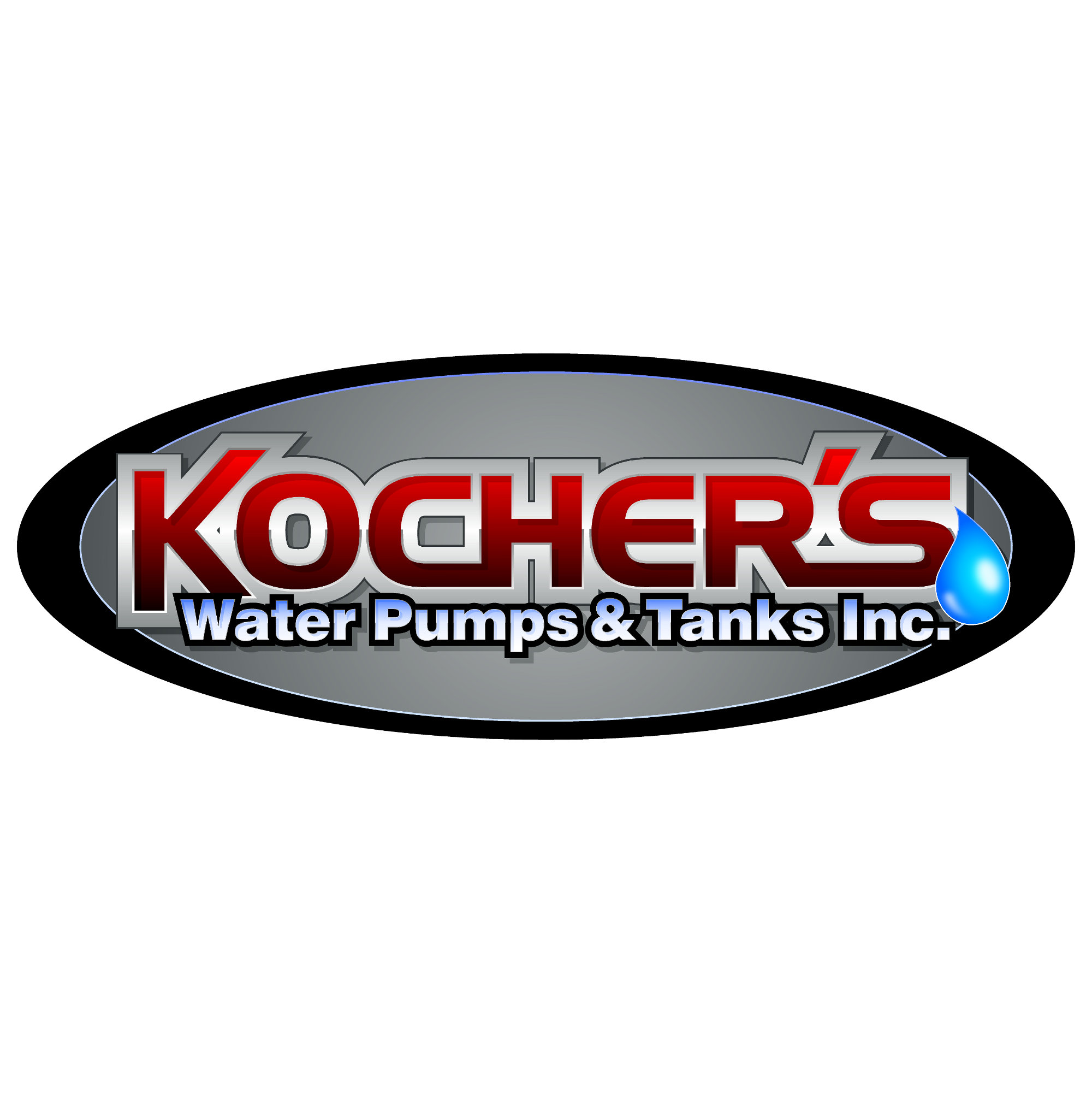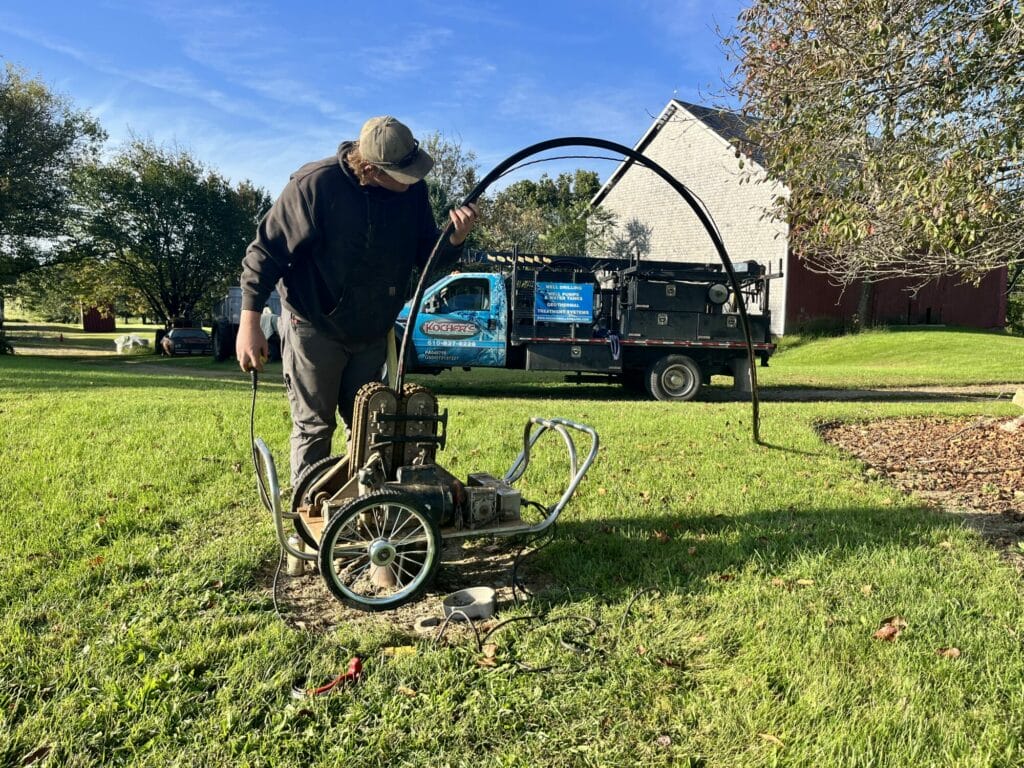In the heart of Pennsylvania, the Lehigh Valley is known for its lush landscapes and reliance on wells for water supply.
However, this dependency comes with its challenges, notably well collapses. These incidents, while not everyday occurrences, can disrupt lives and raise concerns about water safety and availability.
This guide delves into the nuances of well collapses in Lehigh Valley, exploring their causes, frequency, and best practices for repair and prevention. It’s designed to be a resource for well owners, providing the necessary insights to navigate these challenges confidently and clearly.
Understanding Well Collapse: Causes and Frequency
Well collapses in Lehigh Valley can result from a variety of factors. The primary causes include:
- Natural Geological Changes: Shifts in the earth’s structure, common in Pennsylvania due to factors like mining history and karst topography, can lead to collapses, particularly in older wells not built to modern standards.
- Weather-Related Issues: Heavy rains and floods, particularly in the spring and fall, can exacerbate existing vulnerabilities in well structures.
- Aging Infrastructure: Many regional wells are decades old and may not have been maintained adequately, weakening structures.
While well collapses are not a daily concern, they are frequent enough to warrant attention. Historical data indicates that such incidents tend to spike in certain seasons, particularly after heavy rainfall or during periods of intense drought when the ground shifts more dramatically. This pattern underscores the importance of regular maintenance and monitoring, especially during these high-risk periods.
Armed with this knowledge, well owners in Lehigh Valley can take proactive steps to safeguard their wells, ensuring a consistent and safe water supply. The following sections will provide detailed insights into repair techniques, financial considerations, and preventive measures to manage and mitigate the risks associated with well collapses.
Professional Repair Approaches
When a well collapses, professional intervention is often the safest and most effective solution.
- Advanced Assessment Techniques: Utilizing modern methods like sonar imaging for damage assessment.
- Repair Methods:
- Structural Reinforcement: Stabilizing the well structure is often necessary.
- Complete Overhaul: In some cases, partial repairs might not be sufficient, and a full rebuild is required.
Financial and Time Considerations
The cost and duration of repairing a collapsed well can vary significantly, and understanding these factors is important for effective planning.
- Cost Factors: Factors influencing the repair cost, including the extent of damage and chosen repair method.
- Duration: How long might repairs take, from quick fixes to more extensive projects?
Budgeting Tip: Plan for the Unexpected
Allocating a contingency fund for unexpected complications in well repair is crucial. Unforeseen issues, such as hidden structural damages or environmental concerns, often emerge during repairs, leading to extra costs. Factors like weather or permit delays can also extend the repair timeline, increasing expenses. A financial buffer ensures these surprises don’t halt repairs or cause financial stress, allowing for a smoother, more manageable repair process.
DIY vs. Professional Repairs: Understanding the Benefits of Expert Intervention
In well repair, discerning between tasks suited for DIY efforts and those necessitating professional expertise is crucial for the safety and longevity of your well.
- When DIY is Feasible: Simple maintenance tasks, like cleaning debris from the well area or checking for visible signs of wear, can often be managed by the well owner. These tasks are essential for regular upkeep, and help identify potential issues early.
- Professional Necessity: Complex situations, such as a collapsed well, require a professional touch. Experts bring a wealth of knowledge and specialized equipment indispensable for effective repair.
Benefits of Professional Repair Services:
- Expertise and Experience: Professionals possess the necessary skills and experience to accurately diagnose and repair complex issues. They are trained to handle various scenarios, ensuring the repair is done correctly and efficiently.
- Advanced Equipment: Professional services have access to advanced tools and technology that may not be available to the average homeowner.
- Safety: Well repair can be hazardous. Professionals are trained to adhere to safety protocols, minimizing the risk of injury. They are also equipped to handle unexpected situations during the repair process.
- Compliance with Regulations: Well repair often involves navigating complex legal and environmental regulations. Professionals know these requirements and can ensure that your well repair complies with all local, state, and federal laws.
- Long-Term Cost-Effectiveness: While DIY repairs might initially seem cost-effective, professional repairs can be more economical. Expert repairs are typically more thorough and durable, reducing the likelihood of recurrent issues and additional expenses.
- Warranty and Liability: Professional repairs often come with warranties, offering peace of mind and protection against future problems. Additionally, professionals carry liability insurance, providing the homeowner with an extra layer of security.
Post-Repair Water Quality: Ensuring Safety and Purity
After repairing a well collapse, confirming that the water supply remains safe and uncontaminated is vital. This section of the repair process is as crucial as the repair itself.
Testing Necessity: The Critical Role of Water Testing After Repairs
- Detecting Contaminants: Post-repair, testing is essential to detect any possible contamination that might have occurred. It includes checking for bacteria, chemicals, and other harmful substances that could have infiltrated the water system during the collapse or repair process.
- Assessing Water Chemistry: The repair process can alter the water’s chemistry. Testing helps in evaluating changes in pH levels, mineral content, and hardness, ensuring the water’s characteristics are within safe consumption limits.
Ensuring Safety: Steps to Ensure Your Water Remains Safe for Use
- Professional Testing Services: Professional water testing services are recommended for a comprehensive analysis. These experts can conduct a variety of tests to cover all potential contaminants.
- Regular Monitoring: Post-repair, it’s advisable to establish a regular water testing schedule. Periodic checks can help in early detection of any future problems.
- Installing Filtration Systems: Depending on the test results, installing a water filtration or purification system might be necessary. These systems can provide an additional layer of protection, removing any unwanted particles or contaminants.
- Understanding Test Results: Being informed about what the test results indicate is essential. Knowing the acceptable levels of various elements in your water can help you assess its quality and take appropriate actions if needed.
- Responding to Issues: If contaminants are detected, immediate steps should be taken to resolve these issues. This might involve further repairs, system adjustments, or temporarily seeking alternative water sources.
Navigating Insurance and Legalities
Understanding your insurance coverage and local legal requirements is crucial when dealing with well collapse.
- Understanding Coverage: What your insurance policy should include.
- Legal Compliance: Ensuring adherence to local laws and securing required permits for well repair and maintenance.
Leveraging Technology in Well Repair: Embracing Innovations at Kocher’s
In the evolving landscape of well repair, embracing technological advancements is crucial in enhancing efficiency and effectiveness. Kocher’s, a leader in well services in Lehigh Valley, PA, stands at the forefront of this technological revolution, integrating cutting-edge solutions into repair processes.
Cutting-Edge Innovations at Kocher’s
Kocher’s employs state-of-the-art technology to diagnose and repair well collapses. It includes:
- Advanced Diagnostic Tools: Utilizing sonar imaging and ground-penetrating radar, they offer precise assessments of well conditions, detecting issues that are not apparent to the naked eye.
- Robotic and Automated Equipment: Kocher’s deploys automatic tools and automated machinery for complex repairs, ensuring precision and reducing the time required for repairs.
- GPS and Mapping Technologies: To accurately assess well site conditions and plan repair strategies, GPS and advanced mapping tools are employed, ensuring a comprehensive understanding of the geographical and geological context.
Maintenance for Well Longevity: Proactive Strategies
Ensuring the longevity and reliability of your well in Lehigh Valley, PA, hinges on regular and proactive maintenance. At Kocher’s Water Pumps & Tanks Inc., we emphasize the importance of systematic upkeep to prevent future collapses and maintain your well’s integrity.
Regular Inspection: Key to Preventive Maintenance
- Scheduled Check-ups: Engage in scheduled well inspections, ideally twice a year, to assess your well’s structural integrity and functional efficiency. Kocher’s offers comprehensive inspection services that cover every aspect of your well, from the physical structure to the water quality.
- Detecting Early Warning Signs: Our professionals are trained to identify early warning signs that the untrained eye might overlook. It includes checking for cracks, leaks, changes in water pressure, or any signs of contamination. Early detection can prevent minor issues from escalating into significant collapses.
Utilizing Local Resources
In Lehigh Valley, PA, several resources are available for well owners.
- The Pennsylvania Groundwater Information System is a comprehensive database with hundreds of thousands of water well records and more than 2,000 spring records. This system can be accessed through the Pennsylvania Geologic Data Exploration (PaGEODE) web application, which allows searches based on specific criteria or geographic areas.
- The Pennsylvania Department of Community & Economic Development offers various programs and funding opportunities that could benefit well owners. For instance, the Pennsylvania HOME Program provides grant and loan assistance to municipalities.
- Community groups such as the Lehigh Valley Chamber of Commerce can also be a valuable resource. The Chamber has various councils and committees that can provide support and information to well owners.
- Penn State Extension offers resources for properly managing private water wells, springs, and cisterns. These resources include written and video materials to help well owners manage their water supplies.
Essential Insights for Lehigh Valley Well Owners
As we conclude this comprehensive guide on well collapse and repair in Lehigh Valley, PA, it’s crucial to emphasize the importance of staying informed and proactive about your well’s health. This guide has provided expert insights and practical advice, equipping you with the knowledge to handle well collapses effectively. Let’s recap the key elements:
- Understanding Causes and Frequency: Recognize the common causes of well collapses in Lehigh Valley, including natural geological changes, weather-related issues, and aging infrastructure.
- Professional Repair Approaches: Acknowledge the necessity of expert intervention in case of a collapse, understanding the advanced techniques and methods used.
- Financial and Time Considerations: Be aware of the varying cost factors, the potential duration of repair projects, and the importance of budgeting for unexpected complications.
- DIY vs. Professional Repairs: Distinguish between simple maintenance tasks you can do yourself and complex situations that require professional expertise.
- Post-Repair Water Quality: Ensure the safety and purity of your water supply by engaging in regular testing and considering filtration systems if needed.
- Navigating Insurance and Legalities: Understand the importance of insurance coverage and compliance with local regulations during well repairs.
- Leveraging Technology in Well Repair: Stay informed about the latest technological advancements in well repair, as exemplified by Kocher’s Water Pumps & Tanks Inc.
- Maintenance for Well Longevity: Emphasize regular inspections and recognizing early warning signs to prevent future issues.
By adhering to these insights, you’ll be well-equipped to maintain a safe and reliable water supply, safeguarding your well against potential collapses. Remember, the health of your well is integral to your daily life in Lehigh Valley, and staying informed is vital to ensuring its longevity and efficiency.




